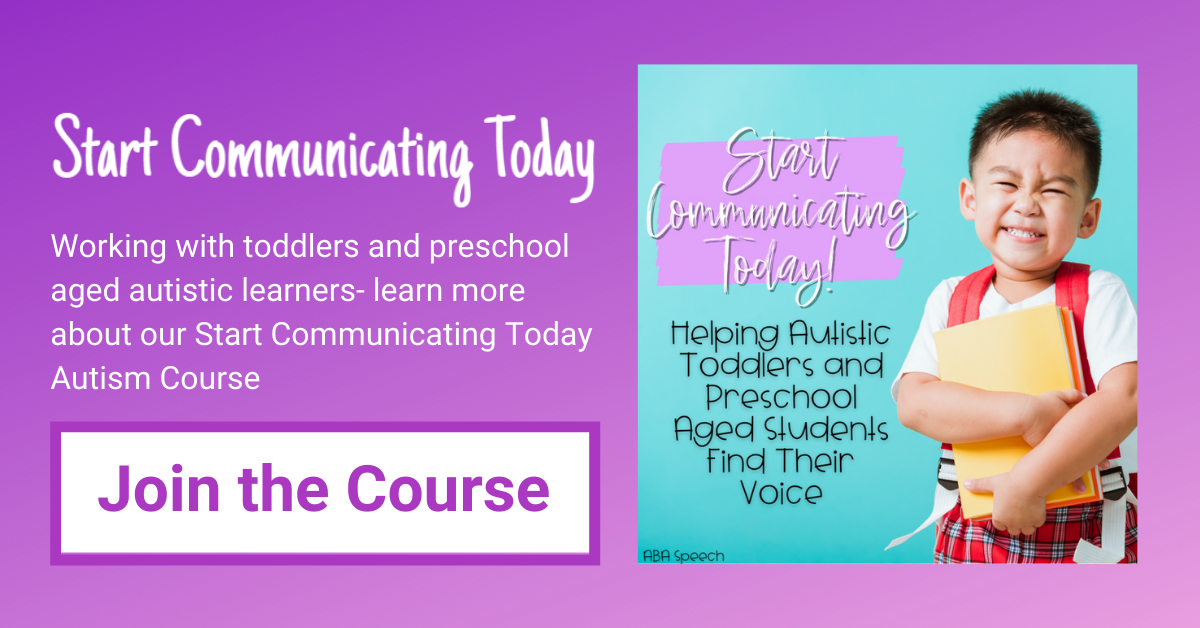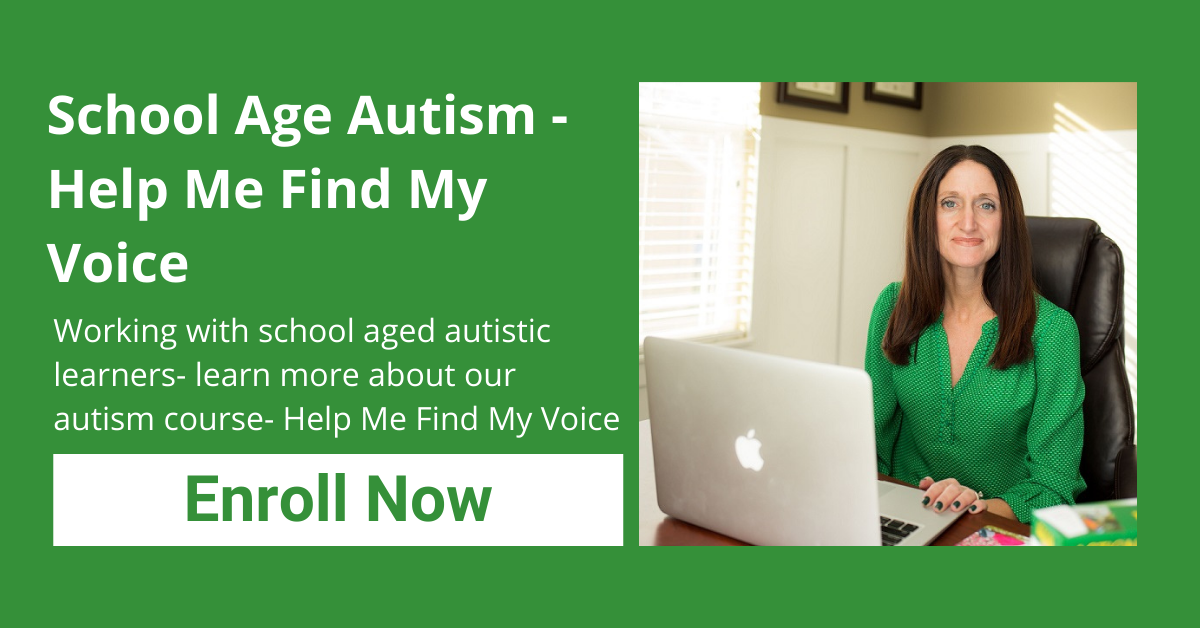“Well, I guess you better figure it out”....
Episode #061: 10 Strategies For Supporting Autistic Learners In Middle and High School
https://www.youtube.com/watch?v=PCjAat5q5vo
NEW: 1.0 ASHA CEUs available!
Listen and earn CEUs for select Autism Outreach podcasts when you join SpeechPathology.com
Enter promo code: AUTISM
I am excited to share my top 10 tips and strategies for supporting middle and high school-aged students. This is an area where I feel not a lot of information is available. I am very fortunate to work with kids across the lifespan from preschool ages in my private practice to middle and high school in the school setting. While I generally focus on helping autistic learners, these tips can be great for anyone working with older students.
1. Build rapport.
This can be difficult and likely won’t happen overnight but it will greatly affect your relationship and effectiveness with the learner.
2. Analyze your service delivery options.
Your students likely have a large array of needs, how can you change the environment, setting, and therapy approach to meet those needs?
3. Know who is on the team.
Do your students see other therapists or other providers? Keep communication open and available for all the team members for your learner’s success.
4. Focus on independence.
Independence looks different for every learner and encouraging this can be done in a variety of big and small ways.
5. Create shared goals.
It’s great to collaborate with other teachers and share goals, these can be developed together and supported across settings.
6. Analyze the function of your goals.
Always ask, how are these goals important across the lifespan? Know why you’re working on something and the scope of sequence to accomplish these goals.
7. Consider working on communication as it relates to vocation and leisure.
As we get older, vocation and leisure become increasingly important, students should feel really comfortable in these areas.
8. Analyze data collection.
Use a variety of data collection related to goals in different forms. Self-monitoring can also be a great tool for data collection.
9. Go over goals with your students.
At the middle and high school, students become part of their goal-setting team, encourage participation in IEPs and keep them aware of the why behind their therapy goals. This is a great time to share how you’re going to support them and what to expect.
10. Reach out with any questions.
Utilize resources available to you! I would love to help and share the resources I’ve created as well as support through a Discovery call.
I hope you found these tips helpful. Please reach out if I can support you!
#autism #speechtherapy
What’s Inside:
- How can you support middle and high school autistic learners?
- Can building a rapport affect therapy?
- Why should older students focus on independence?
- Should older students be involved in their goal planning?
- What resources are available for older autistic learners?
Mentioned In This Episode
—Double Up Vocabulary and Leisure Game – ABA Speech
—Vocational Binder – ABA Speech
—Discovery Call
—ABA SPEECH Your Autism Resource
Rate, Review & Subscribe
If you found this podcast helpful, please consider rating and reviewing my show! This helps me to support support more people — just like you!
If you have not done so already, subscribe to the podcast. This ensures that you do not miss an episode!
Listen on
Apple Podcasts
Listen on
Stitcher
Subscribe
via Email
You Might Also Like…
Episode #185: Replay: The Power of Joint Attention
Enjoy this replay from episode 62. Joint attention is...
Episode #184: 5 Tips For Dealing With Contentious IEP Meetings
Conflict is part of what we do...

